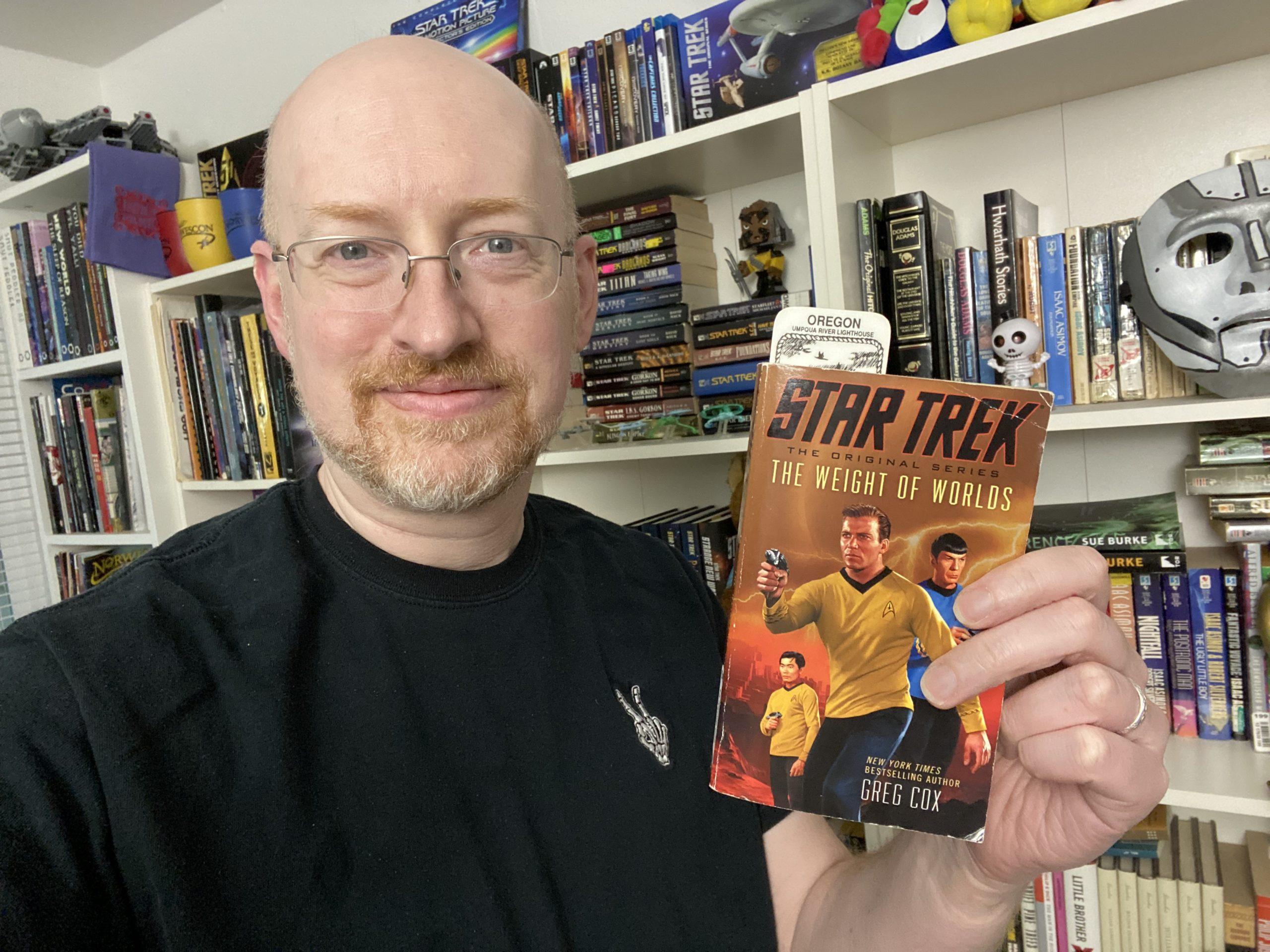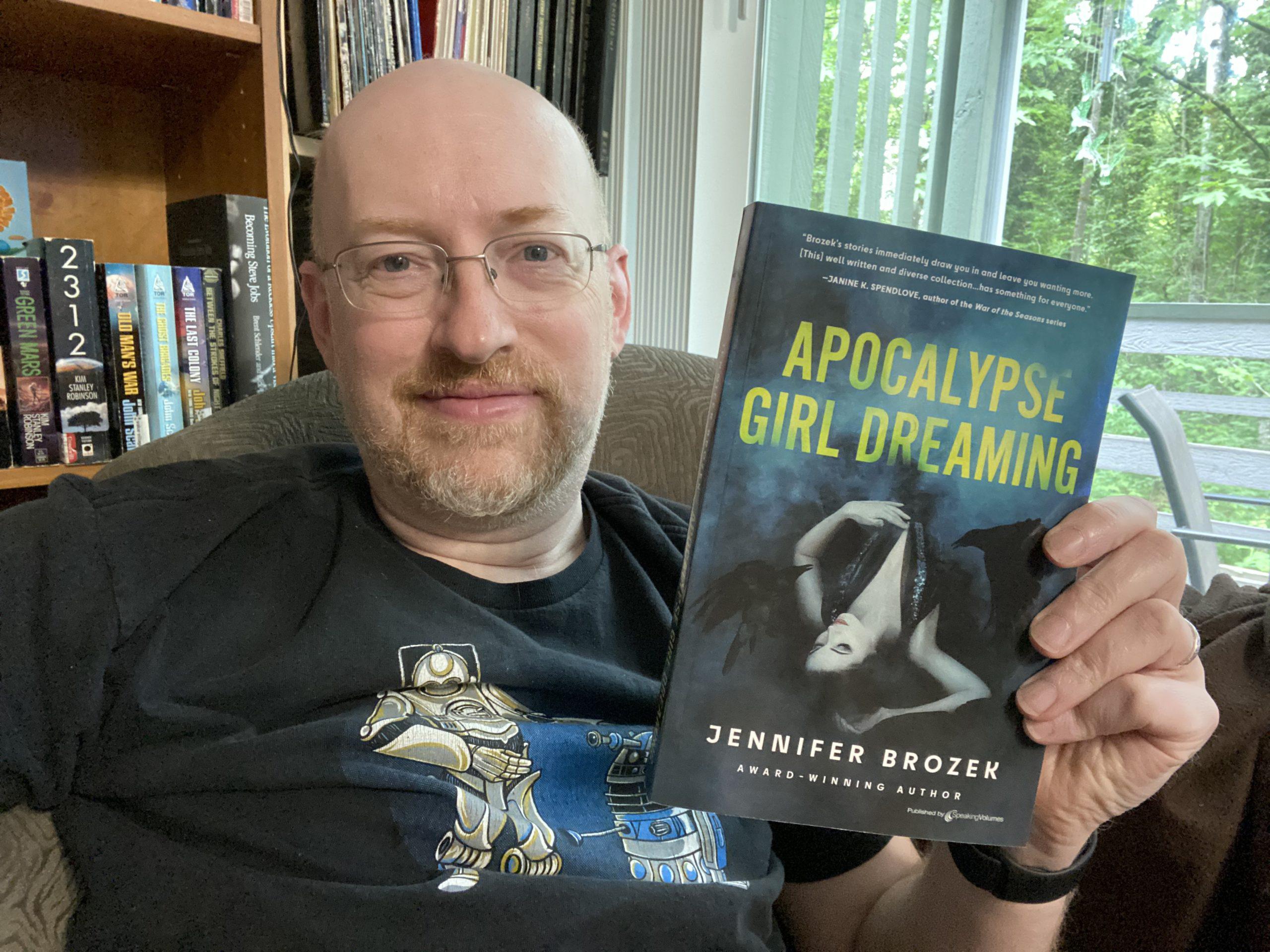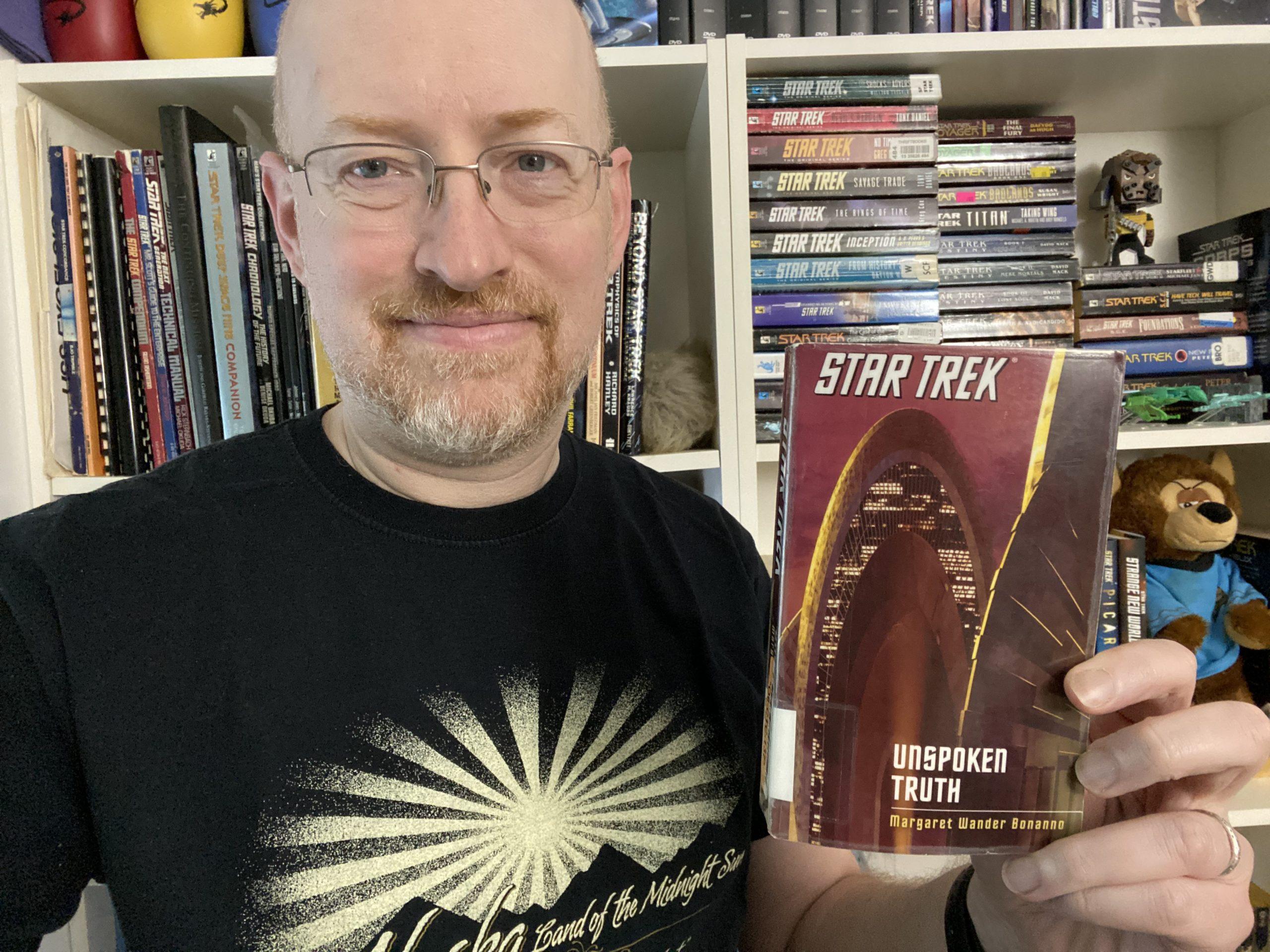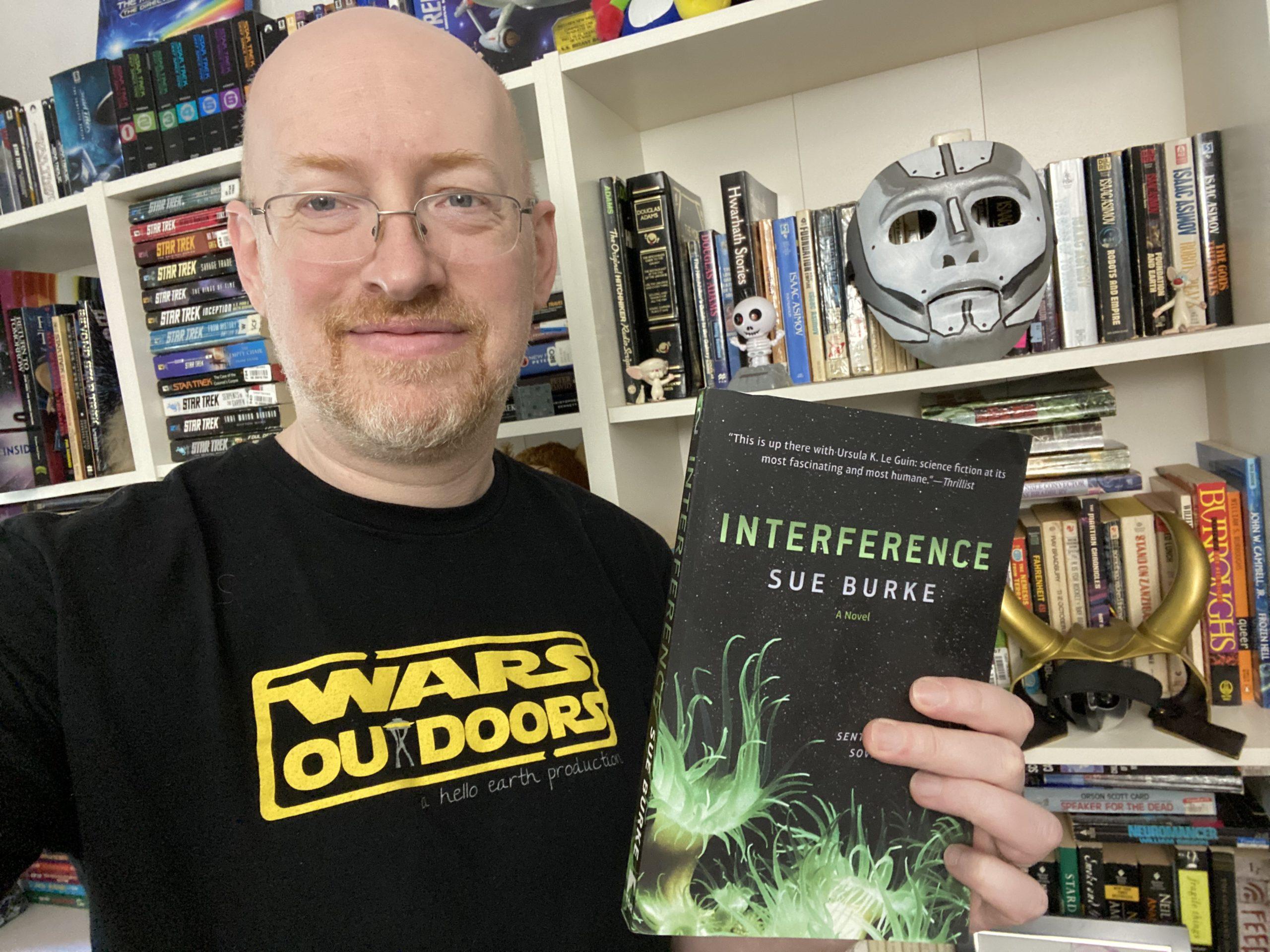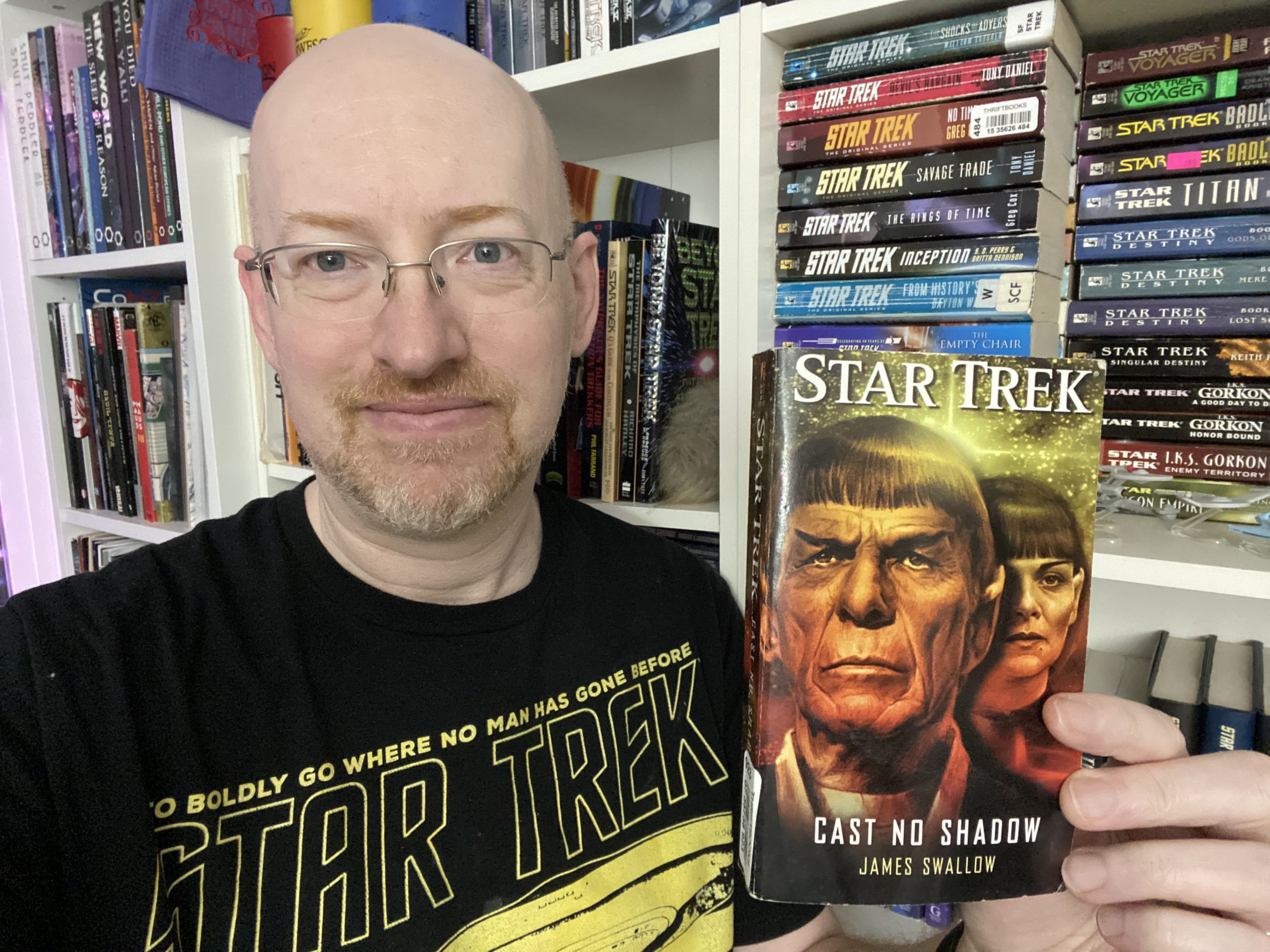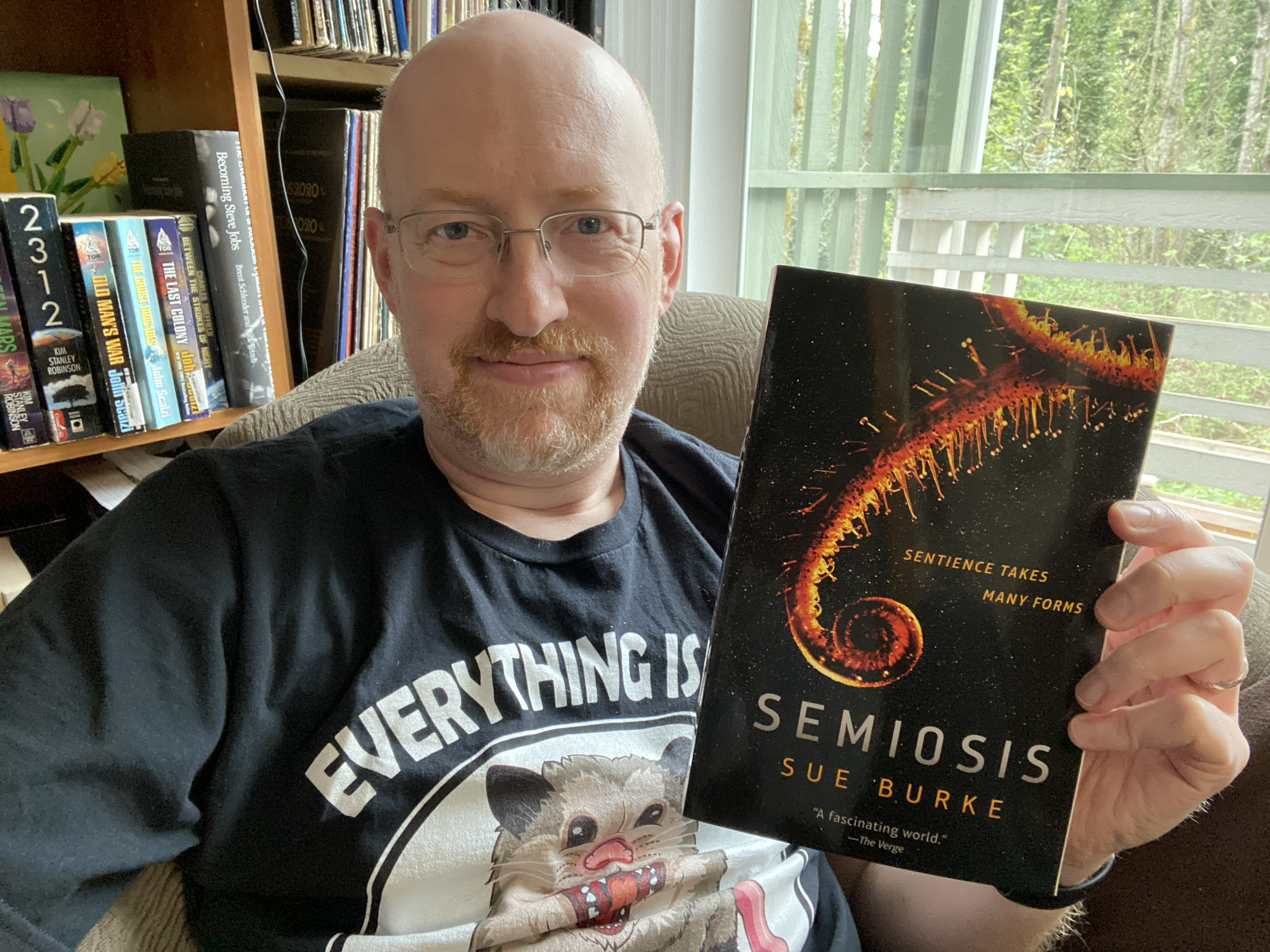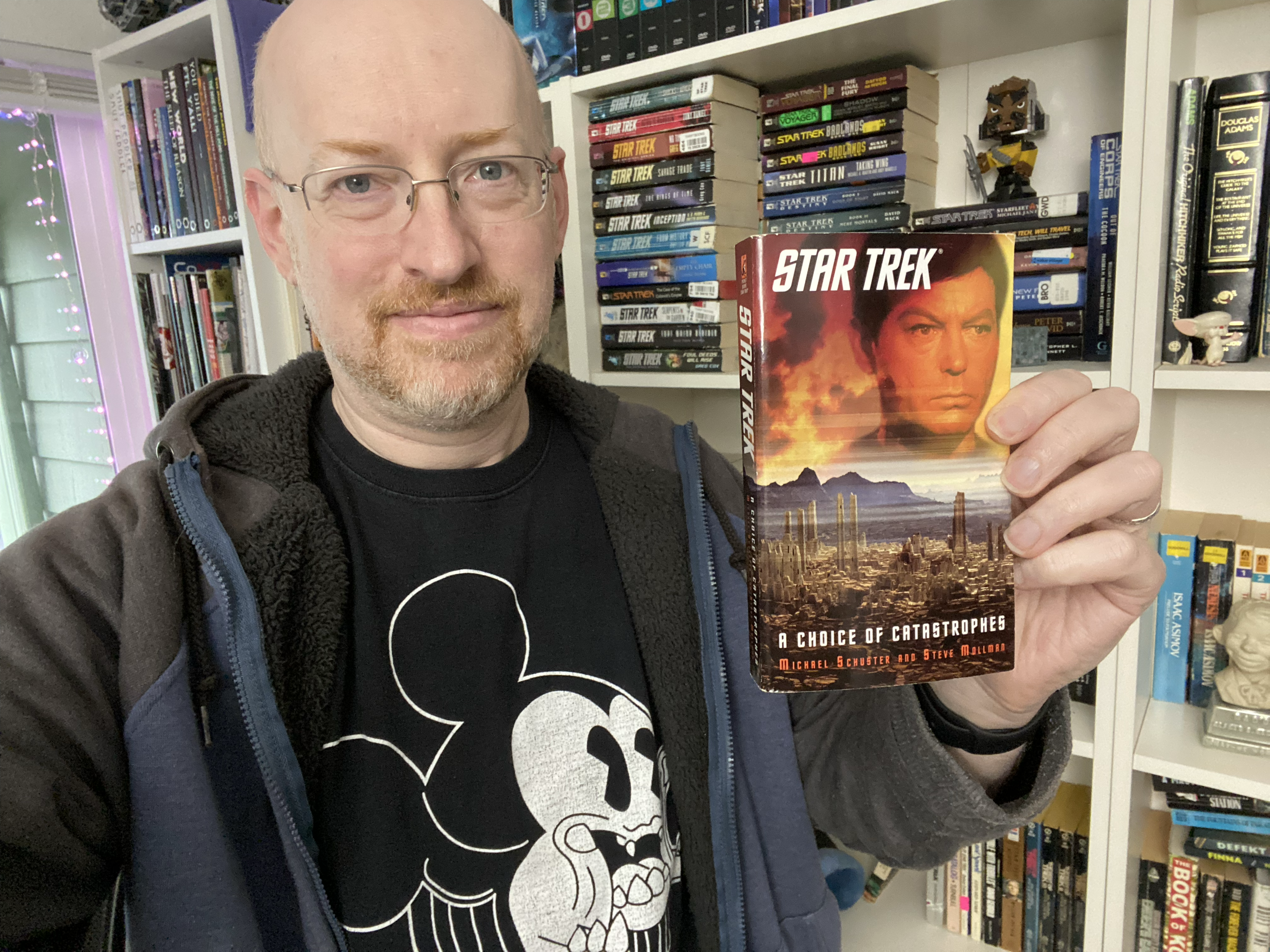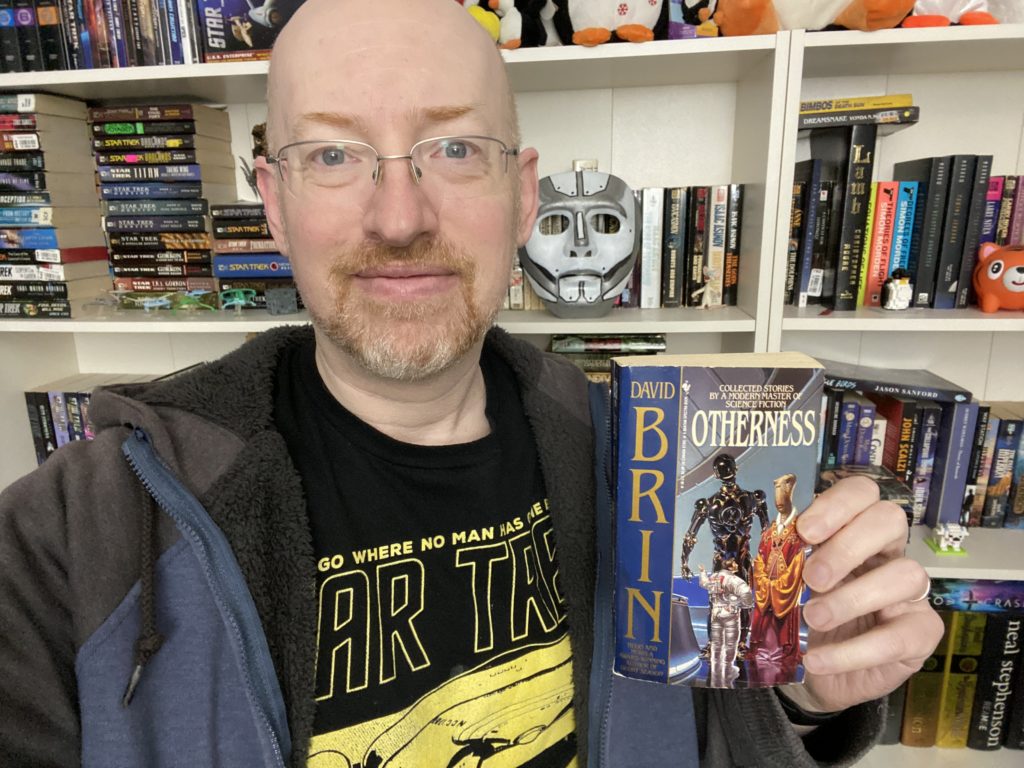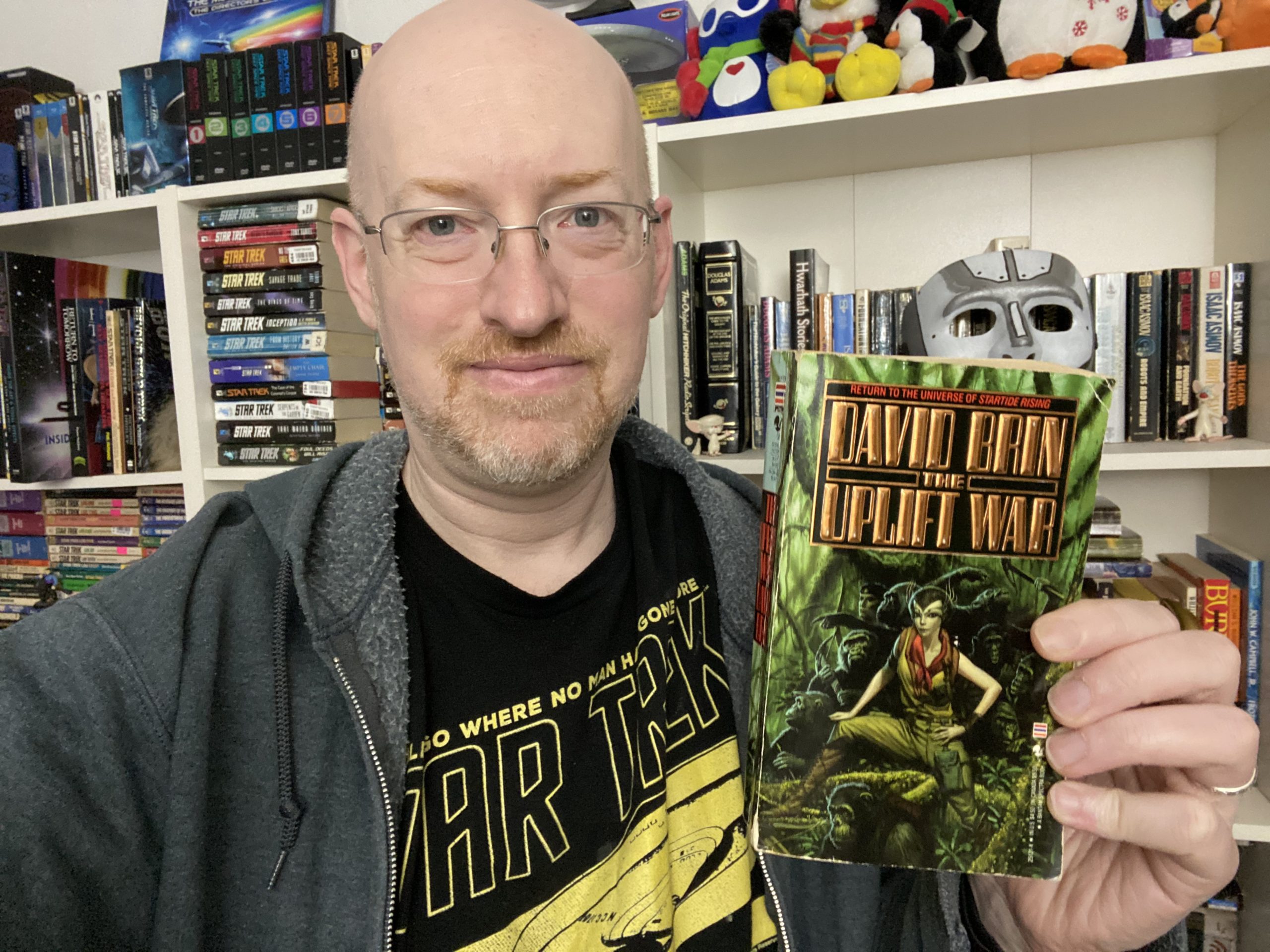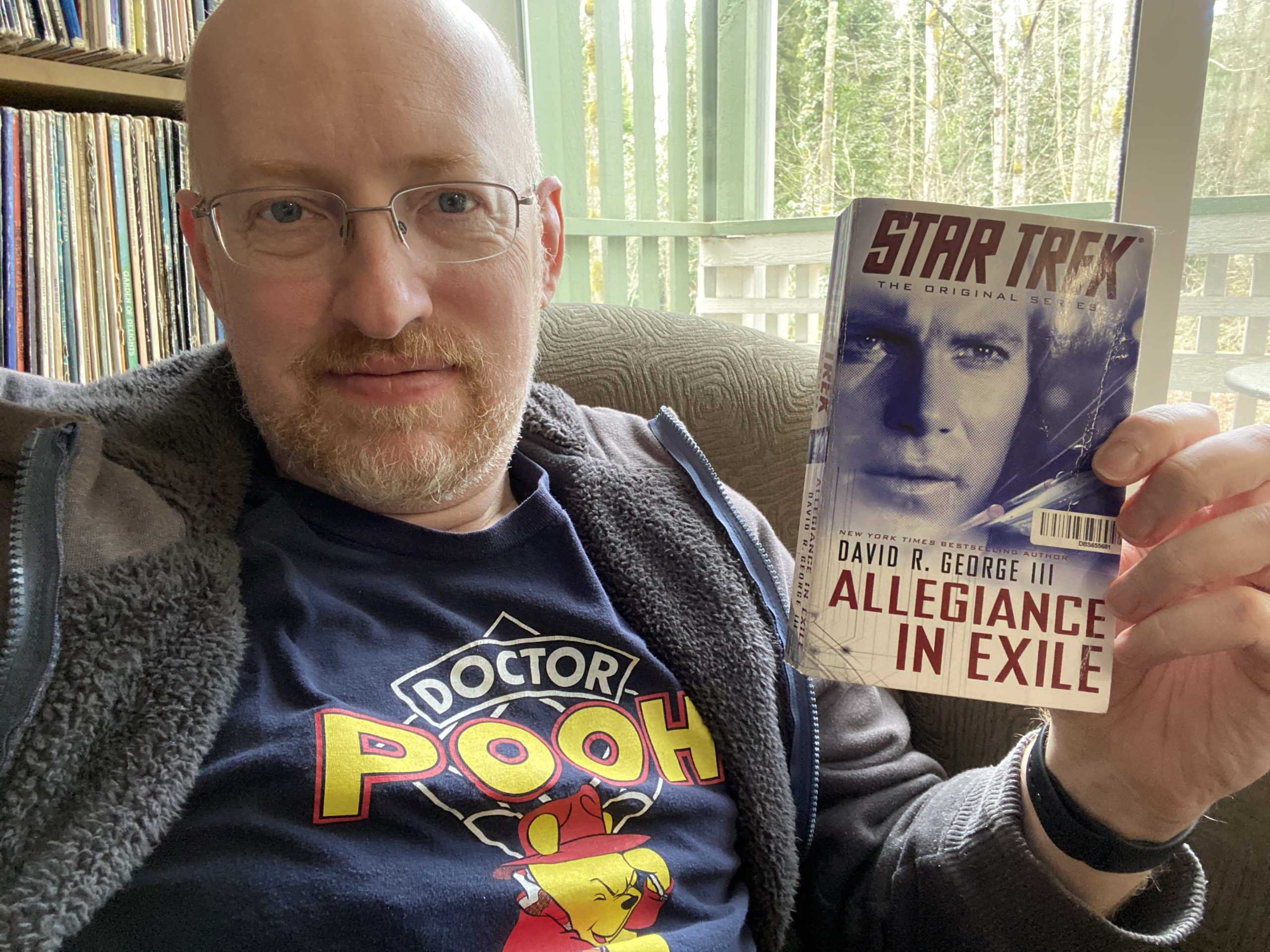28/2023 – ⭐️⭐️⭐️
Kirk and Spock travel to another universe as the Enterprise crew try to counter an invasion by aliens on a religious crusade. The alien’s religion didn’t really make sense to me, their gravity-controlling weapons seemed to work mostly as required by the plot, and Cox’s referential style is as present as ever. (I feel like I harp on this, mentioning it in every review of one of his books, but it really stands out every time. He’s not a bad writer at all, he just has this stylistic quirk that likely doesn’t stick out nearly as much to some people as much as it does to me.) Not a bad adventure, but not top-tier, either.
